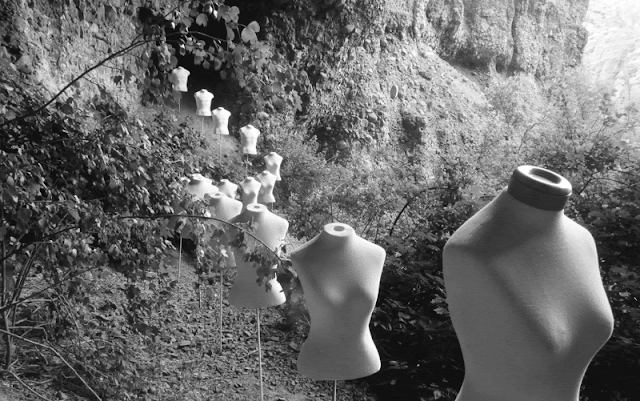Karen Prosen
Orlando, USA
The majority of your work is composed of portraiture. What do you enjoy most about working together with models/friends/family?
Everyone I know is beautiful and I love showing people that aspect of themselves. It's like being a mirror for someone, and saying, "Did you know that this is the way I see you?" I automatically feel closer to someone after photographing them.
Parallel to photography, you are also running an art project called "Something greater than yourself". What was the initial idea behind this?
This idea came after processing a few years of spiritual transitions I went through. In college I had the opportunity to be a Spiritual Care intern at a children's hospital where I witnessed people from all different walks of life caring for others without any judgment whatsoever. That's when I realized how important spiritual tolerance is to me, and I decided to start collecting people's transcendent experiences from all over the world and find other photographers to submit their work that told the stories visually. It's my way of bringing people together while still working with my aesthetics. All the photos I curate have a dreamy quality that remind me of the transitions I went through, exploring alternate states of consciousness. If anyone wants to be a part of it, I'd love that.... something-greater.com
Looking at your sets on flickr, I noticed that you have been working with a number of different analogue cameras. Which has been your favorite so far?
My favorite is my Yashica Mat 124g. I've found that when I have my favorite 35mm camera and also my Yashica Mat 124g with me while I'm out or traveling, I end up shooting 35mm for things that I like or something that won't last long. But when it's something that I love I always shoot with my Yashica because I can take my time and I really appreciate its delicacy. I'm ashamed to say but I'm really clumsy and I've dropped my canon Ae1 several times and I've only dropped my Yashica once.
Do you also like to experiment with different films?
I'll shoot anything I can get my hands on. Sometimes this backfires on me, like when I pick up some really expired film at a garage sale and the photos come back so distorted when I feel that they'd be so much better if the film was crisper. When I have the money I love to shoot with Elite Chrome, Astia 100f and Portra NC.
And where does that leave digital photography? Are there fields or moments you prefer this medium?
I've never had a digital camera. I've picked up a few of my friends' and the instant gratification is so surprising that sometimes I feel like it would be useful to me, but I really prefer the mystery of waiting to develop my film. The light leaks, the depth of field.... they're just not possible with digital. Maybe someday though, I've been known to change my mind easily. I have a feeling that the next time I save up enough money it will go towards a Hasselblad, not a digital camera. A girl can dream!
Back to portraiture: how do you gain confidence and trust in your models?
That's a good question because I normally only shoot my friends who are obviously already comfortable with me. The way I shoot doesn't involve a whole lot of planning or anything like that since I bring my cameras almost everywhere. I'm usually just in a moment with someone and then I'll ask them either not to move or to adjust their position to fit whatever I had caught a glimpse of. I already know I can take a moment and shoot in a way that shows how I feel, but I'd actually like to start shooting more things that involve creation from start to finish, because I think my perspective will grow a lot more, not to mention I could learn how to connect that way with my models.
And would you say that the communication between photographer and model should be a balanced dialogue or does it sometimes have to be based on the photographer's initiative(s)?
I've been on both sides of the camera and I was a model before I became a photographer so from both perspectives, communication and some type of connection is really important. But ultimately as a model you're completely subject to the photographer's initiative. I noticed a pattern of usually being disappointed at how a photographer interpreted me, the set, the styling, etc. and eventually realized it was just because I had a different voice and could do it my own way.
Finally, is there something that has been inspiring you a lot lately?
The influx of love I've been experiencing after coming home from being on contract for three months in Mexico City. I lived in an apartment with no windows and few people that understood me, not to mention doing work that was frustrating and far from my values and goals. The transition back to fresh air is doing something to me.
Enlightened portraiture, take a look at her work!


















































